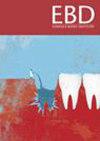Are antibiotics overprescribed for apical periodontitis in dental practice?
Q3 Dentistry
引用次数: 0
Abstract
There is a discrepancy in the databases and data sources mentioned by the authors. The abstract references four databases, which differ from those listed in the materials and methods section. According to the methods, the literature search was conducted across three databases: PubMed-MEDLINE, EMBASE, and Scielo. However, the abstract mentions four databases, including MEDLINE/PubMed, Wiley Online Database, Web of Science, and Scopus. All relevant articles were searched using specific keywords derived from Medical Subject Headings (MeSH) terms and text words (TW) related to the topic. Following the screening of titles and abstracts, the full texts of the selected studies were reviewed, and inclusion and exclusion criteria were applied. Any disagreements regarding study inclusion were resolved by consensus. Studies that reported data on antibiotic prescription patterns by dentists for the treatment of apical disease were included. Data extraction was carried out by three independent reviewers, with a fourth author resolving any disagreements. Extracted data included publication details (authors, year of publication), number of respondents, response rate, survey location, and prescriber type (general practitioner, endodontist, or dental surgeon). The primary outcome measured was the percentage of dentists prescribing antibiotics for each form of periapical endodontic disease. The search strategy identified a total of 96 studies, of which 39 cross-sectional studies met the inclusion criteria. Dentists prescribed antibiotics in 25.8% of cases of symptomatic apical periodontitis (AP) and in 31.5% of asymptomatic AP cases. In instances of acute symptomatic apical abscess with swelling and moderate to severe symptoms, approximately 89% of dentists prescribed antibiotics, compared to nearly 100% of endodontists. Endodontists demonstrate more appropriate antibiotic-prescribing practices than general practitioners. Globally, dentists tend to over-prescribe antibiotics for managing apical disease. Therefore, there is a pressing need to enhance antibiotic prescribing practices in the treatment of endodontic infections.牙科诊所是否对根尖牙周炎过量使用抗生素?
数据来源:作者提到的数据库和数据来源存在差异。摘要中提到了四个数据库,与材料和方法部分中列出的数据库不同。根据方法,文献检索是在三个数据库中进行的:PubMed-MEDLINE、EMBASE 和 Scielo。然而,摘要中提到了四个数据库,包括 MEDLINE/PubMed、Wiley Online Database、Web of Science 和 Scopus:使用从医学主题词表(MeSH)中提取的特定关键词和与主题相关的文本词(TW)对所有相关文章进行检索。筛选标题和摘要后,对所选研究的全文进行审查,并采用纳入和排除标准。关于研究纳入标准的任何分歧均以协商一致的方式解决。数据提取与综合:数据提取由三位独立审稿人完成,第四位作者负责解决任何分歧。提取的数据包括出版物详情(作者、出版年份)、受访者人数、回复率、调查地点和处方者类型(全科医生、牙髓病学家或牙科医生)。测量的主要结果是牙科医生对每种形式的根尖周牙髓病开具抗生素处方的比例:搜索策略共发现了 96 项研究,其中 39 项横断面研究符合纳入标准。在有症状的根尖牙周炎(AP)病例中,牙医处方抗生素的比例为 25.8%,在无症状的根尖牙周炎病例中,牙医处方抗生素的比例为 31.5%。在有肿胀和中重度症状的急性根尖脓肿病例中,约有89%的牙科医生处方了抗生素,而近100%的牙髓科医生处方了抗生素:结论:牙体牙髓科医生的抗生素处方比普通医生更合理。在全球范围内,牙科医生在治疗根尖疾病时往往开出过多的抗生素处方。因此,在治疗牙髓感染时,迫切需要加强抗生素处方的使用。
本文章由计算机程序翻译,如有差异,请以英文原文为准。
求助全文
约1分钟内获得全文
求助全文
来源期刊

Evidence-based dentistry
Dentistry-Dentistry (all)
CiteScore
2.50
自引率
0.00%
发文量
77
期刊介绍:
Evidence-Based Dentistry delivers the best available evidence on the latest developments in oral health. We evaluate the evidence and provide guidance concerning the value of the author''s conclusions. We keep dentistry up to date with new approaches, exploring a wide range of the latest developments through an accessible expert commentary. Original papers and relevant publications are condensed into digestible summaries, drawing attention to the current methods and findings. We are a central resource for the most cutting edge and relevant issues concerning the evidence-based approach in dentistry today. Evidence-Based Dentistry is published by Springer Nature on behalf of the British Dental Association.
 求助内容:
求助内容: 应助结果提醒方式:
应助结果提醒方式:


